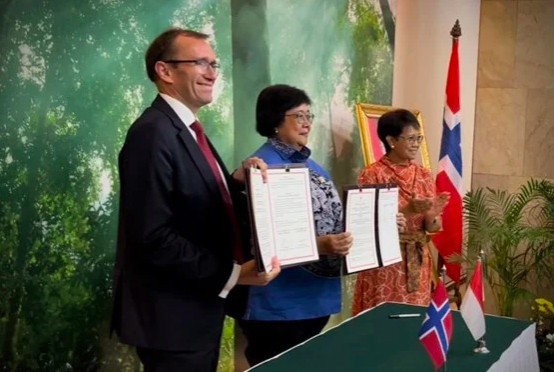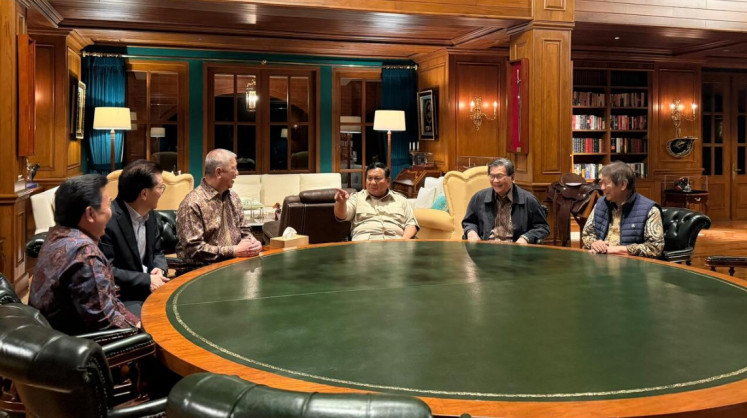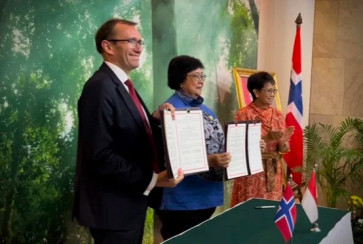Popular Reads
Top Results
Can't find what you're looking for?
View all search resultsPopular Reads
Top Results
Can't find what you're looking for?
View all search resultsNew start for Indonesia's development aid sector?
In the most extreme case, the donor's pledged funds could flow back to the donor's home country to cover the overhead costs of the donor's own implementing agency and technical experts.
Change text size
Gift Premium Articles
to Anyone
 Indonesian Environment and Forestry Minister Siti Nurbaya Bakar (center) and Norwegian Climate and Environment Minister Espen Barth Eide (left), alongside Foreign Minister Retno L.P. Marsudi, pose with a new memorandum of understanding between Indonesia and Norway on Indonesia’s greenhouse gas reduction efforts during a signing ceremony on Sept. 12, 2022 in Jakarta. (The Jakarta Post/Norwegian Ministry of Climate and Environment)
Indonesian Environment and Forestry Minister Siti Nurbaya Bakar (center) and Norwegian Climate and Environment Minister Espen Barth Eide (left), alongside Foreign Minister Retno L.P. Marsudi, pose with a new memorandum of understanding between Indonesia and Norway on Indonesia’s greenhouse gas reduction efforts during a signing ceremony on Sept. 12, 2022 in Jakarta. (The Jakarta Post/Norwegian Ministry of Climate and Environment)

Indonesia and development aid, specifically aid intended for governmental entities, have a love-hate relationship. New development aid projects were launched in the first two decades following the 1998 reform movement, and Indonesia welcomed all forms of assistance, including loans, direct grants and technical assistance.
More development aid poured in after Indonesia announced its voluntary pledge to significantly cut greenhouse gas (GHG) emissions during the 2009 Group of 20 Summit. Most project cancellations and delays at the time were initiated by funders, for reasons that ranged from misuse of funds or a lack of commitment from the Indonesian side.
This paradigm appears to have shifted in recent years. As the recipient country, Indonesia also canceled certain development aid initiatives or partnerships for its own reasons. The most recent example that received media attention was the cooperation between Indonesia and Norway, which was canceled in 2021 allegedly due to a lack of payments. A similar cooperation was reestablished in September this year.
Another example is the Environment and Forestry Ministry's decision to end partnerships and engagement with WWF Indonesia in 2020, which it blamed for forest fires in conservation areas in Jambi.
Although a cancellation by the funder or the recipient is legal and part of the risk assessment process during a project’s development, neither party benefits from canceling a project. Both parties may have wasted resources, including financial and technical support from the funder and in-kind contributions from the recipient.
While development aid is a multifaceted sector, will this new relationship dynamic affect how development aid is formulated and delivered in Indonesia?
A development aid project can be funded by a single government donor, a philanthropist, a coalition or combination of these. Projects financed by foreign development aid continue to place a high priority on the environment and the Sustainable Development Goals. Nevertheless, it is inevitable that each funder or group of funders will have their own agendas and interests.


















